Hide My Ass! VPN Service Review
Our readers have weighed in with their own assessments of popular VPN Service HMA!, to which we’ve added our own hands-on test results.
Interface And Setup
While HMA! offers instructions on its software download page for running manual VPN setups, you’ll likely want to grab one or more of its various clients, available in Windows, Mac, Linux, iOS and Android versions. The Windows version we evaluated proved remarkably intuitive and easy to navigate, plus HMA! throws in some eye candy with a handy global map of available VPN servers. And what a list -- 620 VPN servers across 75 countries as of this writing, comprising over 77,000 available IP addresses. A little over half of these are located in the U.S.
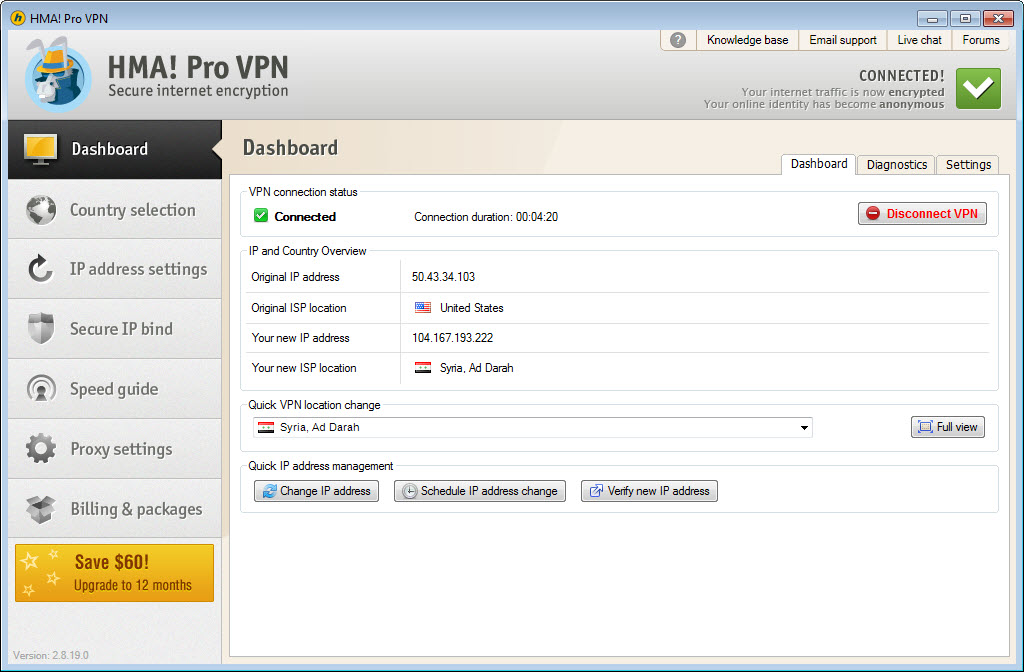
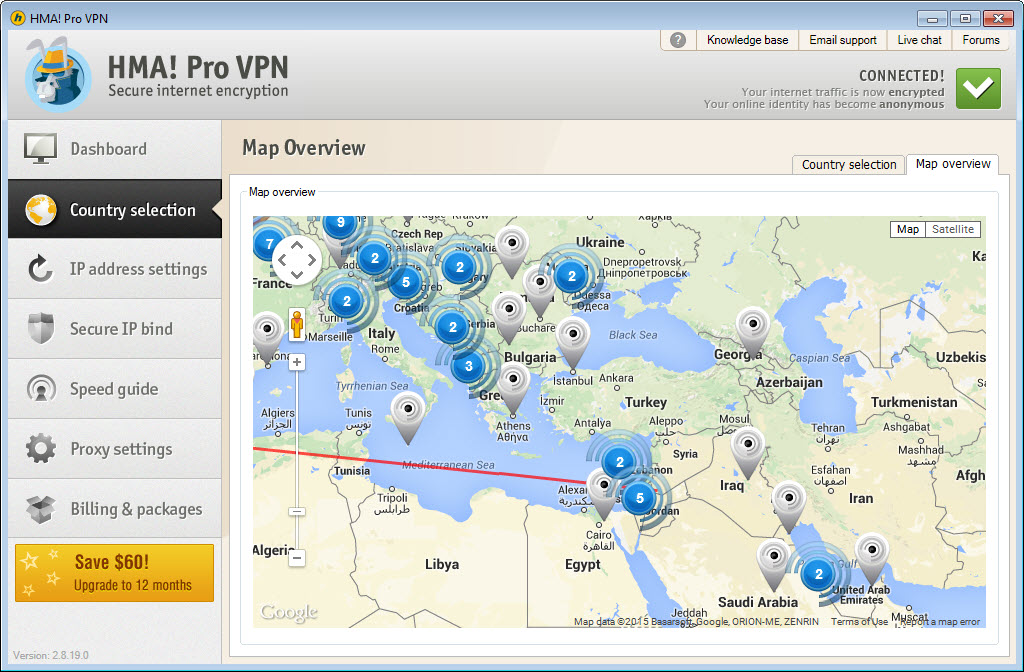
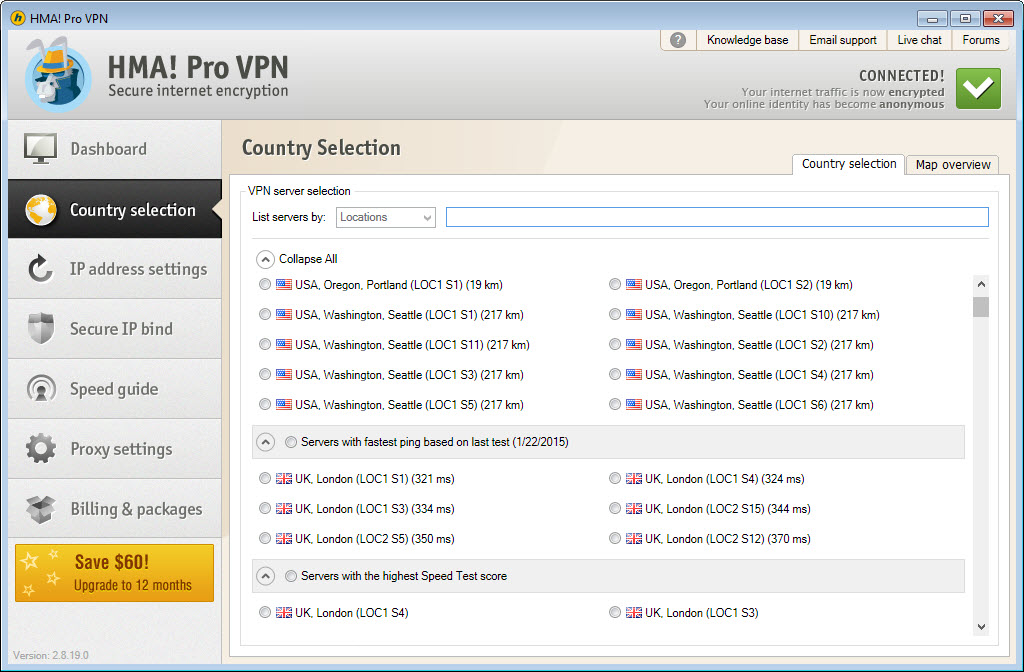
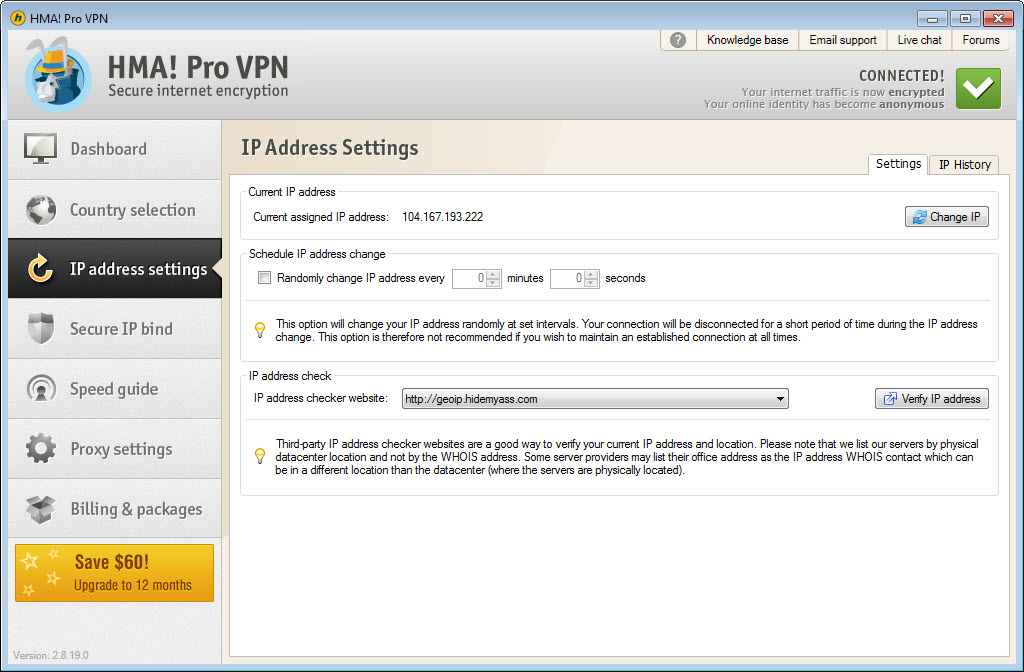
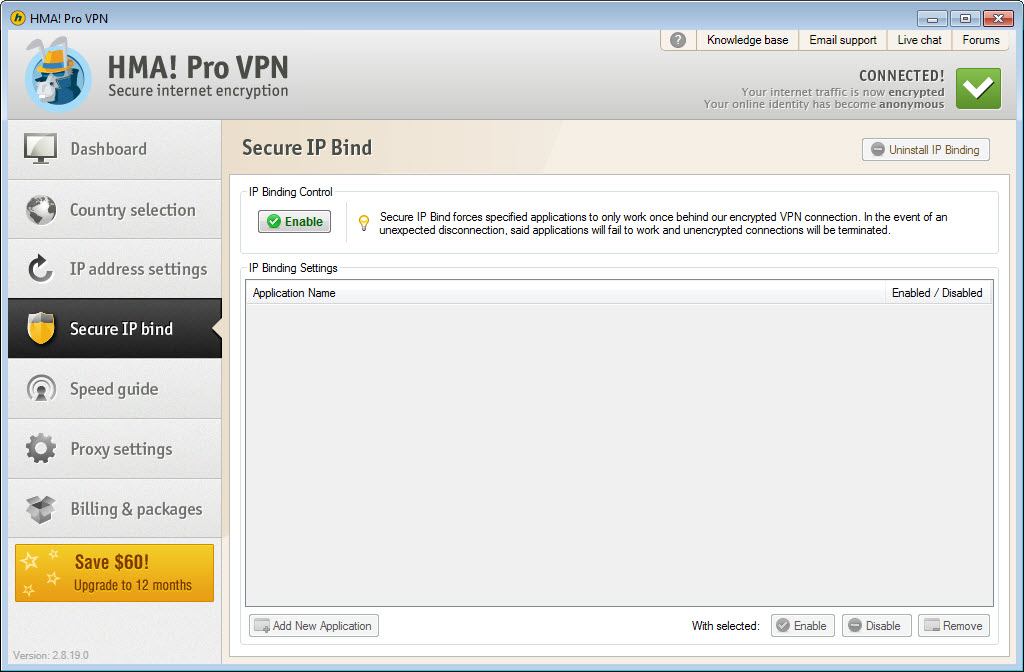
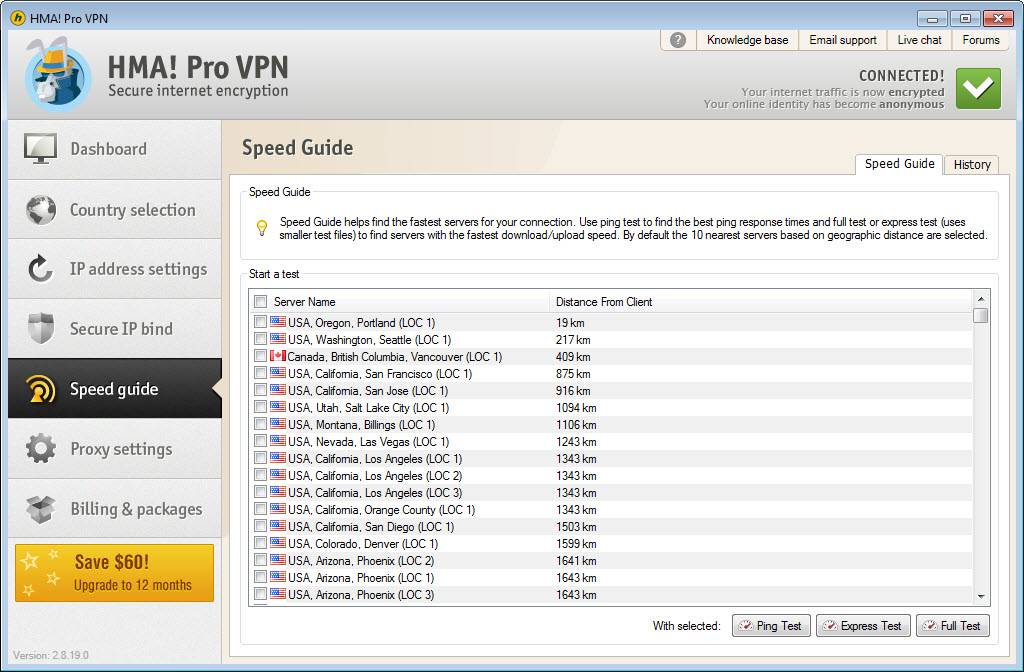
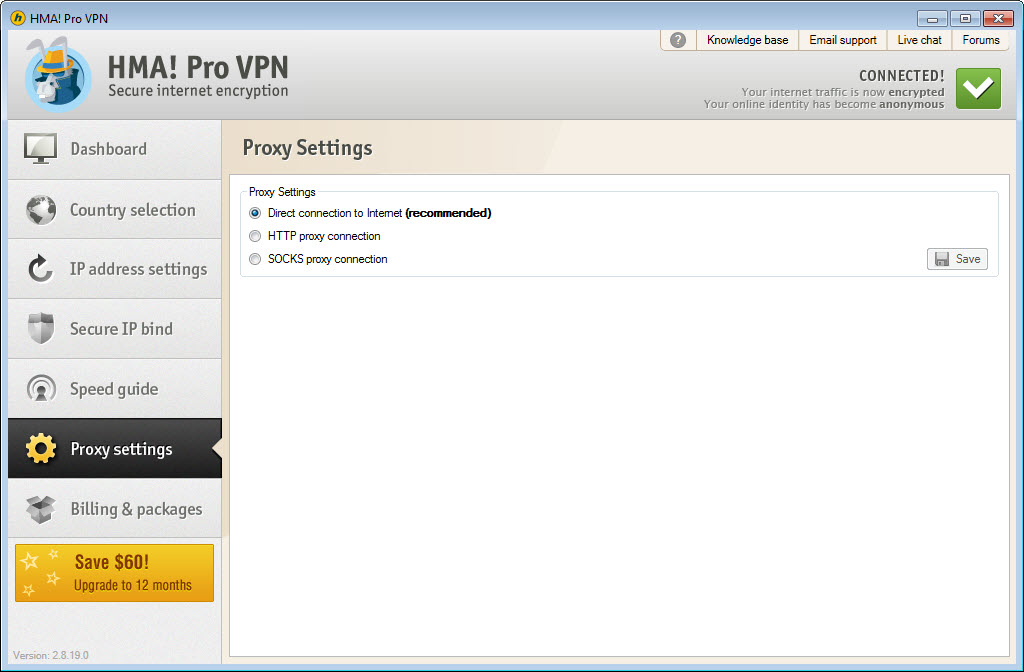
During our performance testing, we at first relied on the application's Speed Guide tab. This uses your native IP location to list the geographically closest HMA! servers to you. We strongly recommend using this tool. When we first began using HMA!, we thought the choice of best-performing server would be obvious: the closest one, which, in our case, was Portland (LOC1). The software’s Express Test revealed — and further testing proved — that this was far from the best option. Portland LOC1 traffic was barely able to drag itself the 19km back to our location. Seattle proved several times faster, and Vancouver, British Columbia, was faster yet. The Speed Guide polls all HMA! VPN servers, so don’t be shy about testing any of them regardless of proximity.
Also, if you happen to pick on a server loaded at over 30 percent more than other servers in that city, you’ll receive a load balancing warning asking if you’d like to connect to the least loaded server instead. Nice.
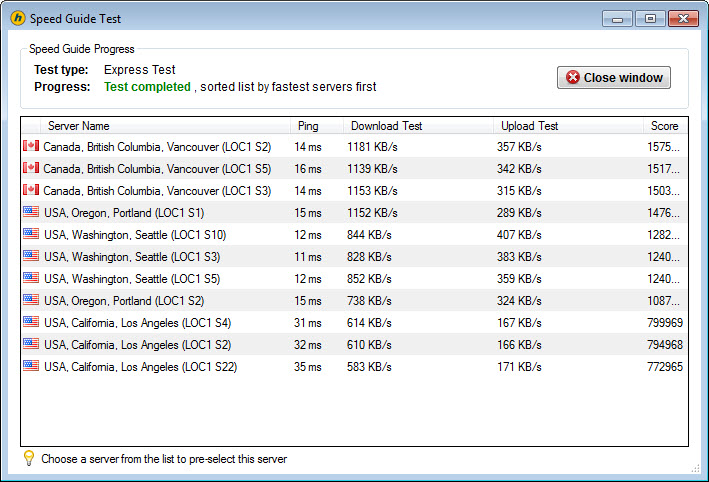
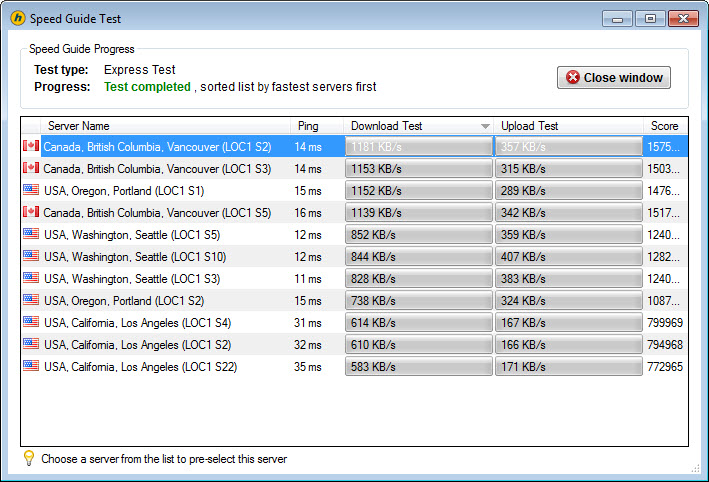
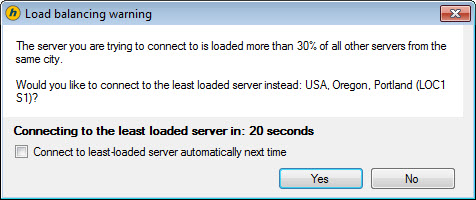
Other pleasant perks in the HMA! Pro VPN app include the ability to randomly change IP address according to a timed interval you choose as well as “Secure IP Bind,” which forces applications to only work when under the protection of HMA!’s encryption. This way, if there’s an unexpected disconnect from a VPN server, applications won’t be trying to reconnect while using an unencrypted feed. You also have the ability to bind only individual applications, such as a browser or torrent client.
In an effort to keep things simple, HMA!’s drop-downs only offer two security protocols: OpenVPN and PPTP. If you’re not picky, keeping the other cipher concerns hidden and handled should be no problem.
Get Tom's Hardware's best news and in-depth reviews, straight to your inbox.
-
carnetarian I stopped reading as soon as I saw p2p services are disabled. I will never use a VPN that tries to tell me how I'm allowed to use the internet.Reply -
Rookie_MIB Currently a member of HMA, and a while back their speeds were a bit flaky, they've improved that quite a bit to the point where I can max out my connection. Only other I have issues is that they -do- log and will forward copyright accusations.Reply
However, judicious use of -where- you connect to avoids most of those problems (ie: don't connect to an US server if you're going to torrent US films, in fact, avoid US servers in general...)
As for their turning in of the hackers who were using their service, while they might shrug at copyright accusations (relatively victimless crime), remember what these guys did in the Sony hack, that was a high-profile international incident which resulted in the FBI, Justice Department, and Interpol stepping up. Faced with that, and -legal- court orders, I'm sure they had little choice but to turn over the info they had on them. -
f-14 ReplyCurrently a member of HMA, and a while back their speeds were a bit flaky, they've improved that quite a bit to the point where I can max out my connection. Only other I have issues is that they -do- log and will forward copyright accusations.
However, judicious use of -where- you connect to avoids most of those problems (ie: don't connect to an US server if you're going to torrent US films, in fact, avoid US servers in general...)
As for their turning in of the hackers who were using their service, while they might shrug at copyright accusations (relatively victimless crime), remember what these guys did in the Sony hack, that was a high-profile international incident which resulted in the FBI, Justice Department, and Interpol stepping up. Faced with that, and -legal- court orders, I'm sure they had little choice but to turn over the info they had on them.
that's not hiding your ass, that's 'giving up your ass' false advertising. -
Rookie_MIB Reply15953239 said:that's not hiding your ass, that's 'giving up your ass' false advertising.
No, because it's clear in the TOS that they DO keep track of logins and correlated to IP/DATE. They forwarded it and warned me that it was against their TOS and would terminate my account if it continued. That is also the -only- one I've ever gotten.
These guys who did the Sony hack went way beyond a simple movie download though, they infiltrated a major company, using a service which clearly stated they did track that info, and would comply with a legal court order (not just a random threat letter from a copyright troll), and they thought they were untouchable.
They were wrong.
-
carnetarian Reply15953239 said:that's not hiding your ass, that's 'giving up your ass' false advertising.
This is right on the money. It sounds like this VPN will give you up in a heartbeat, which completely defeats the entire purpose of having a VPN. I wouldn't use this VPN if they paid me. -
admin$ I used to use HMA. They will not allow you to download any torrents which was the reason i had purchased the VPN in the first place. They sent me a warning then suspended my account. They auto renewed my subscription without notifying me in January, suspended my account in February. No refund. I would not recommend this software to anyone. I have since switched to PIA... no issues at all, would definitely recommend PIA.Reply